Search
Search Results
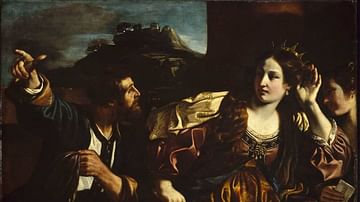
Article
Sammu-Ramat and Semiramis: The Inspiration and the Myth
Sammu-Ramat (r. 811-806 BCE) was the queen regent of the Assyrian Empire who held the throne for her young son Adad Nirari III (r. 811-783 BCE) until he reached maturity. She is also known as Shammuramat, Sammuramat, and, most notably, as...
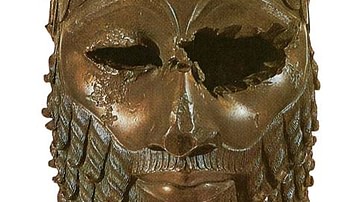
Definition
Sargon of Akkad
Sargon of Akkad (r. 2334 - 2279 BCE) was the king of the Akkadian Empire of Mesopotamia, the first multi-national empire in history, who united the disparate kingdoms of the region under a central authority. He is equally famous today as...
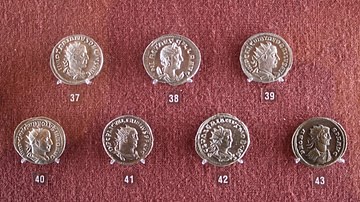
Definition
Roman Coinage
Roman coins were first produced in the late 4th century BCE in Italy and continued to be minted for another eight centuries across the empire. Denominations and values more or less constantly changed but certain types such as the sestertii...
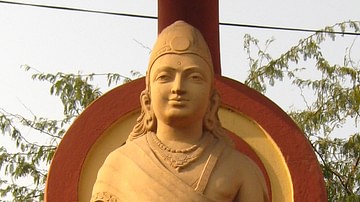
Definition
Chandragupta Maurya
Chandragupta Maurya (c. 321 - c. 297 BCE), known as Sandrakottos (or Sandrokottos) to the Greeks, was the founder of the Maurya Dynasty (4th-2nd century BCE) and is credited with the setting up of the first (nearly) pan-Indian empire. Aided...
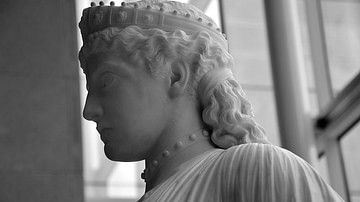
Definition
Semiramis
Semiramis is a legendary queen thought to based on the historical Sammu-Ramat (r. 811-806 BCE) the queen regent of the Assyrian Empire who held the throne for her young son Adad Nirari III until he reached maturity. She is also known as Shammuramat...
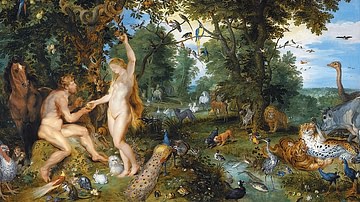
Definition
Garden of Eden
The Garden of Eden is the biblical earthly paradise created by God to be inhabited by his first human creation - Adam and Eve. Some claim that the name “Eden” derives from the Akkadian term edinu, which means 'plain'. In the biblical tradition...
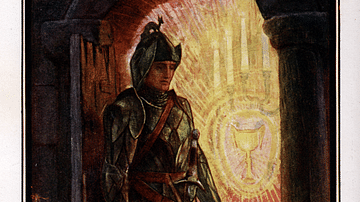
Definition
Lancelot
Lancelot, also known as Sir Lancelot and Lancelot du Lac (“Lancelot of the Lake”) is the greatest knight of King Arthur's court and lover of Arthur's wife, Queen Guinevere, best known from Sir Thomas Malory's Le Morte D'Arthur (1469 CE...
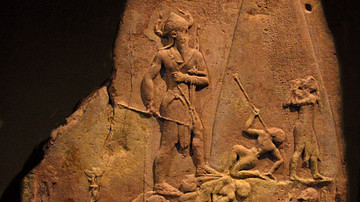
Definition
Naram-Sin
Naram-Sin (r. 2261-2224 BCE) was the last great king of the Akkadian Empire and grandson of Sargon the Great (r. 2334-2279 BCE) who founded the empire. He is considered the most important Akkadian king after Sargon (or, according to some...
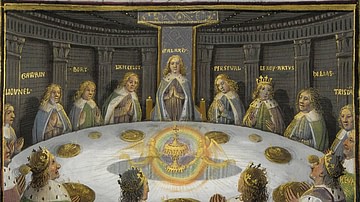
Definition
Thomas Malory
Sir Thomas Malory (c. 1415-1471 CE) was an English knight during the War of the Roses (1455-1487 CE) best known for his highly influential work of medieval literature, Le Morte D'Arthur regarded as the first novel in English, the first in...
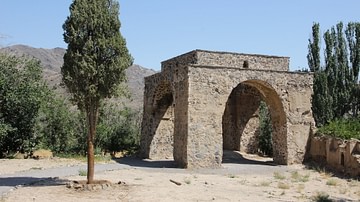
Definition
Fire Temple
Fire Temples are places of worship in the Zoroastrian religion. They were known as ataskada (“house of fire”) by the Persians but are best known today by their Greek name pyratheia (fire temple). They are thought to have originated from the...